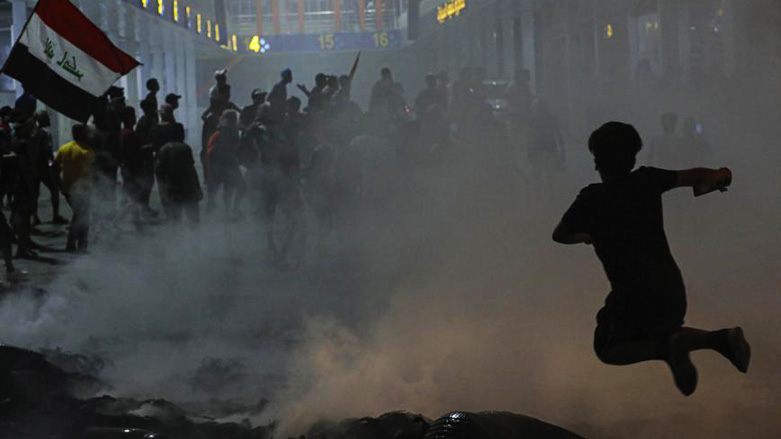HRW: Iraq has done little to stop assassinations of activists

ERBIL (Kurdistan 24) – US-based Human Rights Watch (HRW) on Wednesday charged that Baghdad has done little to stop targeted killings of Iraqi activists by unidentified gunmen.
Hundreds of demonstrators across central and southern Iraq have been killed by security forces and Iran-backed militias of the Popular Mobilization Forces (PMF) since October 2019, when the current protest movement over institutional corruption, poor services, and a low standard of living.
Unknown assailants most recently assassinated two protesters and wounded another four, all linked to a youth protest group with political aspirations in the southern city of Basra, HRW said.
On August 14, two masked armed men in civilian dress shot and killed 30-year-old Tahseen Osama Ali in his apartment.
Four days later, another unidentified male on the back of a motorcycle shot and killed protest movement leader Reham Yacoub as she was leaving a gym in her car. She was among vocal protesters that took to the streets starting in 2018.
“We are under threat,” an Iraqi activist told HRW. “A senior security official that I know warned us that our group is being targeted but didn’t know by whom. I have now gone into hiding.”
Read More: Iraqi protests resume as assassinations target activists
Yacoub was killed last week during an official visit by Iraqi Prime Minister Mustafa al-Kadhimi to the US, a move seen by some analysts as an attempt by Iran-backed groups in the PMF to undermine his visit.
On Saturday after his return, Kadhimi visited the family of Yacoub to offer his condolences and to promise justice for them.
The assassinations come just a month after the killing of Hisham al-Hashimi, a well-known Iraqi government adviser and analyst who was critical of the PMF.
Read More: Iraqi terrorism expert, Hisham al-Hashimi, assassinated in Baghdad
Since then, fears of broader persecution have since grown among activist communities in Iraq.
“Despite commitments from al-Kadhimi, as far as Human Rights Watch has been able to determine, no one has been arrested for the killing and authorities have not provided any transparency on the progress of the investigation,” the report also stated.
Promises made by the Iraqi government since May “for accountability for excessive use of force by security forces” appear to have gone unfulfilled.
“(…) no senior commanders have been prosecuted,” HRW said. “Instead, a few commanders have been fired, and low-level security force members have been prosecuted.”
HRW said that the Iraqi government “should make public the number of investigations it has referred to the judiciary into armed forces’ behavior, including into PMF members, since protests began in 2019, including the most recent killings.”
Moreover, HRW said that Baghdad “should publicize the steps it is undertaking to investigate killings by non-state armed actors and results achieved. It should present publicly all measures it is currently undertaking to prevent future abuses by armed forces in protest contexts.”
Kadhimi came into office in early May, months after his predecessor Adil Abdul Mahdi resigned in the face of growing pressure as a direct result of the protests.
He promised to reign in Iran-aligned militia groups acting independently of the federal government and has taken some measures against them, though to little apparent effect.
“The renewed targeting of protesters in Basra highlights the continued climate of impunity and efforts by armed actors to silence dissent,” Belkis Wille, senior crisis and conflict researcher at HRW said in the report. “Until authorities properly prosecute these horrific killings, protesters are risking their life every time they head out into the streets.”
However, she also added that it’s unclear if “the federal government is even able to rein in the violence at this point and ensure justice for victims.”
Editing by John J. Catherine
